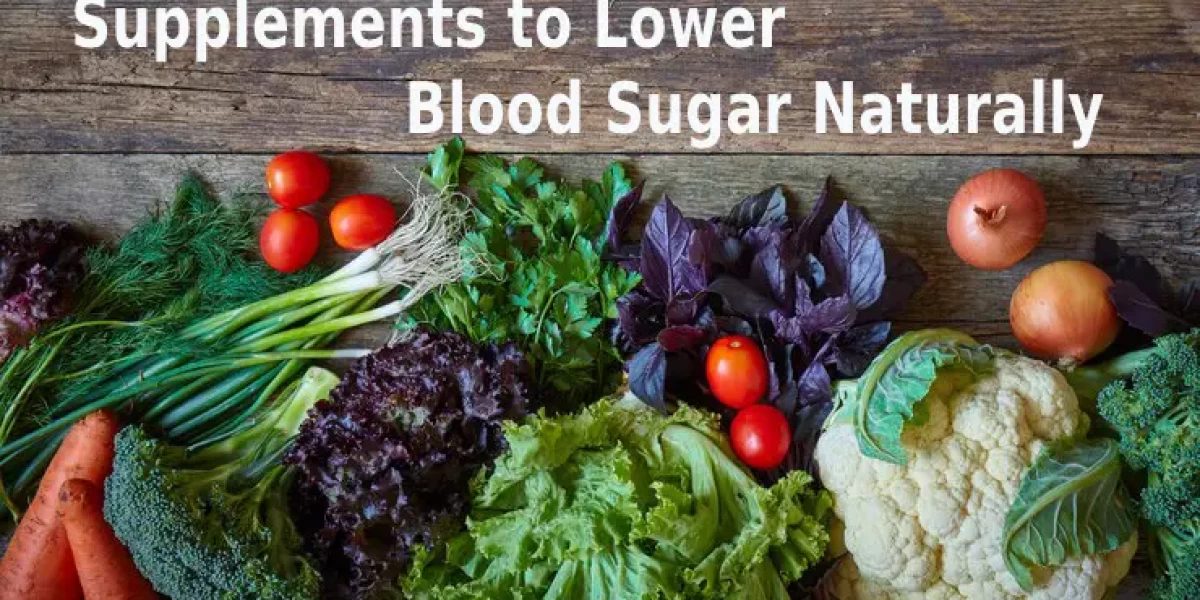Introduction
Heartburn, also known as pyrosis, is a common condition experienced by many. It manifests as a burning sensation in the chest, typically behind the breastbone. Often mistaken for cardiac-related pain, heartburn is actually gastrointestinal, caused primarily by acid reflux. This occurs when stomach acid, which is vital for digestion, flows back into the esophagus—the tube connecting the mouth to the stomach. The esophagus is not equipped to handle the corrosive nature of stomach acid, which leads to the characteristic burning sensation of heartburn.

Causes
The primary cause of heartburn is the malfunctioning of the lower esophageal sphincter (LES), a valve-like muscle that opens to allow food into the stomach and closes to prevent acid from backing up into the esophagus. When the LES does not function properly, it allows stomach acid to escape, leading to irritation and discomfort in the esophagus lining.
Several specific triggers can exacerbate heartburn symptoms. These include certain foods such as spicy dishes, onions, citrus fruits, tomato products, and fatty or fried foods Beverages that may trigger heartburn include alcohol, carbonated drinks, coffee, and other caffeinated beverages. Additionally, medications such as benzodiazepines, calcium channel blockers, tricyclic antidepressants, iron supplements, and non-steroidal anti-inflammatory drugs (NSAIDs) can relax the LES or irritate the esophagus, leading to heartburn.
Understanding these triggers is crucial for managing heartburn. By identifying and avoiding personal triggers, individuals can significantly reduce the frequency and intensity of heartburn episodes. For those who suffer from chronic heartburn, known as gastroesophageal reflux disease (GERD), medical treatment and lifestyle changes are often necessary to manage the condition. It’s important to consult with a healthcare provider if heartburn becomes frequent or severe, as it can lead to more serious health issues if left untreated.
Symptoms of Heartburn: Recognizing the Discomfort
Heartburn is a condition that manifests as a burning sensation in the chest, often mistaken for cardiac discomfort but actually stem

ming from the gastrointestinal tract. This sensation, typically located behind the breastbone, can extend up towards the throat. Individuals may also experience regurgitation of acid, which is the sensation of stomach contents moving back up
into the throat or mouth, leaving a sour or bitter taste. Another common symptom is difficulty swallowing or a feeling that food is stuck in the throat or chest, known as dysphagia.
These symptoms can be exacerbated by certain activities. Postprandial heartburn, which occurs after eating, is particularly common as the stomach is full and more likely to reflux its contents. Lying down or bending over can also worsen symptoms due to the same gravitational effects that facilitate the backflow of acid into the esophagus.
Risk Factors for Developing Heartburn
Several factors increase the likelihood of experiencing heartburn. Obesity is a significant risk factor; excess weight can put pressure on the abdomen, pushing stomach contents into the esophagus. Pregnancy often brings on heartburn due to hormonal changes and the physical pressure of the growing fetus. Smoking can weaken the lower esophageal sphincter (LES), the muscle that prevents stomach acid from rising up, thus facilitating acid reflux. Additionally, certain medical conditions, such as a hiatal hernia, where part of the stomach pushes through the diaphragm, can also contribute to the occurrence of heartburn.
Understanding these risk factors is essential for managing and preventing heartburn. Lifestyle modifications, such as weight management, dietary changes, and quitting smoking, can significantly reduce the frequency and severity of heartburn episodes. It’s also important to avoid lying down immediately after meals and to elevate the head while sleeping to prevent nighttime symptoms. For those with persistent heartburn, medical intervention may be necessary to manage the condition and prevent complications.
Recognizing the symptoms of heartburn and being aware of the risk factors are the first steps towards effective management. By making informed lifestyle choices and seeking medical advice when necessary, individuals can alleviate the discomfort of heartburn and improve their overall quality of life. If you are experiencing frequent or severe heartburn, it is important to consult a healthcare professional for a proper evaluation and treatment plan. Remember, taking proactive measures can lead to better digestive health and overall well-being.
Triggers of Heartburn

Foods and Beverages That Commonly Trigger Heartburn Certain foods and beverages are notorious for triggering heartburn. These include spicy, fatty, and acidic foods, which can irritate the esophagus and cause the lower esophageal sphincter (LES) to relax, allowing stomach acid to escape. High-fat foods, in particular, slow down digestion, increasing the likelihood of acid reflux.
Impact of Carbonated Drinks and Caffeine Carbonated drinks and caffeine are also common culprits. The bubbles in carbonated beverages can cause the stomach to distend, putting pressure on the LES, while caffeine can relax the LES, both leading to an increased risk of heartburn.
Citrus Fruits, Tomatoes, Chocolate, and Mint Citrus fruits and tomatoes are high in acidity, which can exacerbate heartburn symptoms by irritating an already sensitive esophageal lining. Chocolate contains methylxanthine, which relaxes the LES and can increase the frequency of acid reflux episodes. Similarly, mint is known to relax the LES, making it easier for acid to travel up the esophagus.
Eating Large Meals or Lying Down After Eating Lastly, eating large meals or lying down after eating can trigger heartburn. Large meals increase stomach pressure, which can push acid into the esophagus. Lying down too soon after eating can have a similar effect, as gravity is no longer helping to keep stomach contents in place.
A wide range of foods and behaviors can trigger heartburn. By identifying and avoiding these triggers, individuals can significantly reduce the occurrence of heartburn and improve their quality of life. If heartburn persists, it is important to consult a healthcare professional for proper diagnosis and treatment. Remember, proactive dietary management is key to controlling this common digestive issue.
Complications of Untreated Heartburn
Untreated heartburn, often a symptom of acid reflux, can lead to several long-term complications. Chronic heartburn can cause esophagitis, an inflammation of the esophagus that can lead to discomfort and difficulty swallowing. Over time, the persistent acid assault on the esophageal lining can result in gastroesophageal reflux disease (GERD), a more serious condition that affects digestion and can significantly impact quality of life.
One of the severe consequences of prolonged acid exposure is the development of esophageal strictures, which are narrowings of the esophagus that can obstruct the passage of food and liquid, leading to weight loss and malnutrition. Additionally, a condition known as Barrett’s esophagus may develop, where the normal esophageal lining changes to resemble the intestinal lining. This condition increases the risk of developing esophageal cancer, particularly adenocarcinoma.
Diagnosis of Heartburn
Diagnosing heartburn typically involves a review of medical history and a physical examination. To confirm the diagnosis and assess the severity, doctors may recommend diagnostic tests such as endoscopy, which uses a camera to view the esophagus, pH monitoring, to measure acid levels, and esophageal manometry, to evaluate esophageal muscle contractions. These tests help in differentiating heartburn from other gastrointestinal conditions like gallstones or stomach ulcers, which can present with similar symptoms.
Understanding these complications and the importance of accurate diagnosis is crucial. If you experience persistent heartburn, it’s important to consult a healthcare professional to prevent these serious conditions. Early intervention and treatment can help manage symptoms and reduce the risk of long-term damage to the esophagus.
Treatment and Management of Heartburn
Heartburn, a common discomfort experienced by many, can significantly impact one’s quality of life. However, effective management and treatment strategies can alleviate symptoms and improve well-beingLifestyle modifications are the cornerstone of heartburn management. Simple changes such as avoiding late-night meals, elevating the head while sleeping, and reducing stress can have a profound impact on symptom frequency and intensity.
Dietary changes also play a pivotal role. Foods high in fat, caffeine, and certain spices are known to exacerbate heartburn; thus, their avoidance is recommended. Incorporating alkaline foods like bananas and melons can neutralize stomach acid and provide relief. Weight loss and regular exercise contribute to reducing the pressure on the stomach, thereby minimizing the risk of acid reflux.
For many, over-the-counter antacids and acid reducers offer quick relief by neutralizing stomach acid or reducing its production. However, for those with severe or persistent heartburn, prescription medications such as proton pump inhibitors or H2 blockers may be necessary to manage symptoms effectively. In extreme cases where medical therapy is insufficient, surgical interventions like Nissen fundoplication may be considered to restore the function of the lower esophageal sphincter.
Home Remedies for Heartburn Relief
In addition to medical treatments, various home remedies can provide heartburn reliefNatural remedies such as ginger, chamomile, and licorice root have been used for centuries to soothe the gastrointestinal tract and mitigate heartburn symptoms. Aloe vera juice is known for its anti-inflammatory properties and can be beneficial when consumed before meals. Similarly, apple cider vinegar may help balance the body’s pH levels, although it should be used with caution due to its acidic nature.
Baking soda is a quick, at-home antacid that can neutralize stomach acid when dissolved in water. Another herb, slippery elm, forms a protective layer on the lining of the esophagus, potentially providing relief from the burning sensation associated with heartburn. While these remedies can be effective, it’s important to consult with a healthcare professional before trying them, especially if you’re already on medication or have underlying health conditions.
In summary, heartburn management encompasses a multifaceted approach that includes lifestyle and dietary modifications, medical treatments, and natural remedies. By understanding and applying these strategies, individuals can achieve significant relief from heartburn and improve their overall digestive health.
Prevention of Heartburn
Heartburn can be a frequent and uncomfortable condition, but there are effective strategies to prevent its episodes. One of the most impactful is maintaining a healthy weight. Excess weight, particularly around the abdomen, can increase the pressure on the stomach, causing acid to back up into the esophagus. Adopting a balanced diet and regular exercise can help in achieving and maintaining a healthy weight, thereby reducing the occurrence of heartburn.
Another preventive measure is eating smaller, more frequent meals. Large meals can fill the stomach and increase the likelihood of acid reflux. By eating smaller portions more frequently, the stomach is less likely to become overly full, and the lower esophageal sphincter is better able to prevent stomach contents from flowing back into the esophagus.
It’s also crucial to avoid trigger foods and beverages. Common culprits include onions, citrus fruits, tomato products, fatty or fried foods, chocolate, alcohol, caffeinated beverages, and spicy foods. Identifying and avoiding these triggers can significantly reduce heartburn episodes.
Lastly, elevating the head while sleeping can prevent nighttime heartburn. By raising the head of the bed by about six to eight inches, gravity helps keep stomach acid in the stomach and away from the esophagus, reducing the risk of acid reflux during sleep.
Conclusion
In conclusion, heartburn is a common condition that can be managed with lifestyle adjustments and preventive measures. We’ve discussed various strategies such as maintaining a healthy weight, eating smaller meals, avoiding trigger foods, and elevating the head while sleeping to prevent heartburn episodes effectively.
However, it’s important to emphasize the importance of seeking medical advice for persistent or severe heartburn. Frequent heartburn could be a sign of a more serious condition like GERD, and professional medical advice is crucial for proper diagnosis and treatment.
Encouragement to adopt preventive measures and make necessary lifestyle changes is key to managing heartburn effectively. By implementing these strategies, individuals can improve their quality of life and minimize the discomfort caused by heartburn.
Frequently Asked Questions
01. What is heartburn and pyrosis?
Heartburn and Pyrosis: Heartburn, also known as pyrosis, is a discomforting sensation of burning in the chest, typically felt behind the breastbone. It’s often a symptom of acid reflux, where stomach acid flows back into the esophagus.
02. What is the cause and treatment of heartburn?
Cause and Treatment of Heartburn: The primary cause of heartburn is acid reflux due to a weakened or relaxed lower esophageal sphincter. Treatment includes lifestyle changes, over-the-counter antacids, H2 blockers, and proton pump inhibitors.
03. What is the cause of pyrosis?
Cause of Pyrosis: The cause of pyrosis, or heartburn, is generally the same as heartburn, which is the backflow of stomach acid into the esophagus, causing irritation.
04. How is heartburn prevention?
Heartburn Prevention: Preventing heartburn can involve eating smaller meals, avoiding lying down after eating, maintaining a healthy weight, and avoiding known dietary triggers.
05. What is the treatment of heartburn?
Treatment of Heartburn: Treatment may include antacids to neutralize stomach acid, medications to reduce acid production, lifestyle changes, and, in severe cases, surgery.
06. What is the causes of heartburn?
Causes of Heartburn: Causes include certain foods and beverages, obesity, smoking, pregnancy, stress, and some medications.
07. What are the 7 symptoms of heartburn?
7 Symptoms of Heartburn: Symptoms include a burning sensation in the chest, sour taste in the mouth, difficulty swallowing, chronic cough, sore throat, regurgitation of food or liquid, and feeling of a lump in the throat.
08. What is the symptoms of heartburn?
Symptoms of Heartburn: Common symptoms are a burning sensation in the chest, especially after eating or at night, and acid regurgitation.
09. What foods to avoid for heartburn?
Foods to Avoid for Heartburn: Foods that may trigger heartburn include spicy foods, onions, citrus fruits, tomato-based products, fatty or fried foods, chocolate, caffeine, alcohol, and mint.
*Image credits- freepik*
Important Notice:
The information provided on “health life ai” is intended for informational purposes only. While we have made efforts to ensure the accuracy and authenticity of the information presented, we cannot guarantee its absolute correctness or completeness. Before applying any of the strategies or tips, please consult a professional medical adviser.














